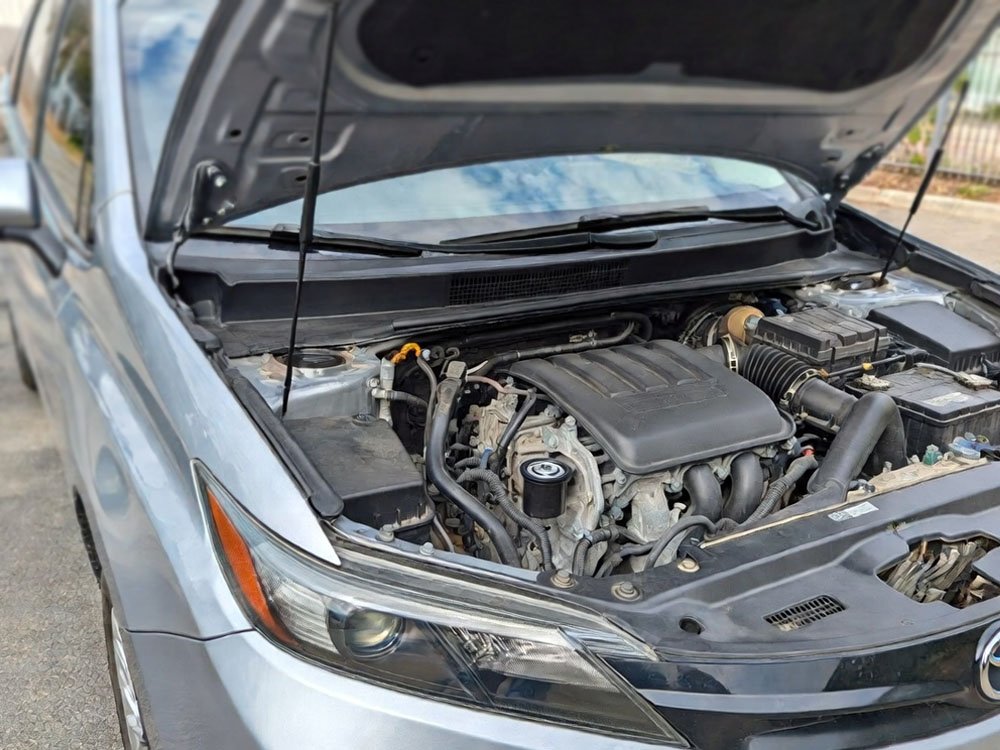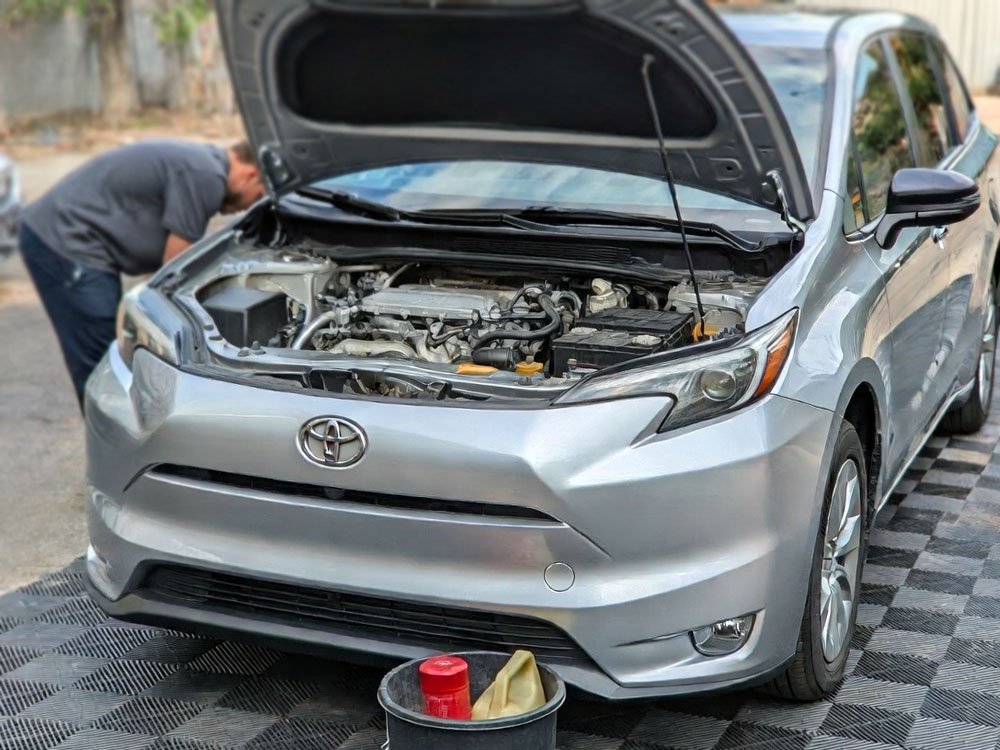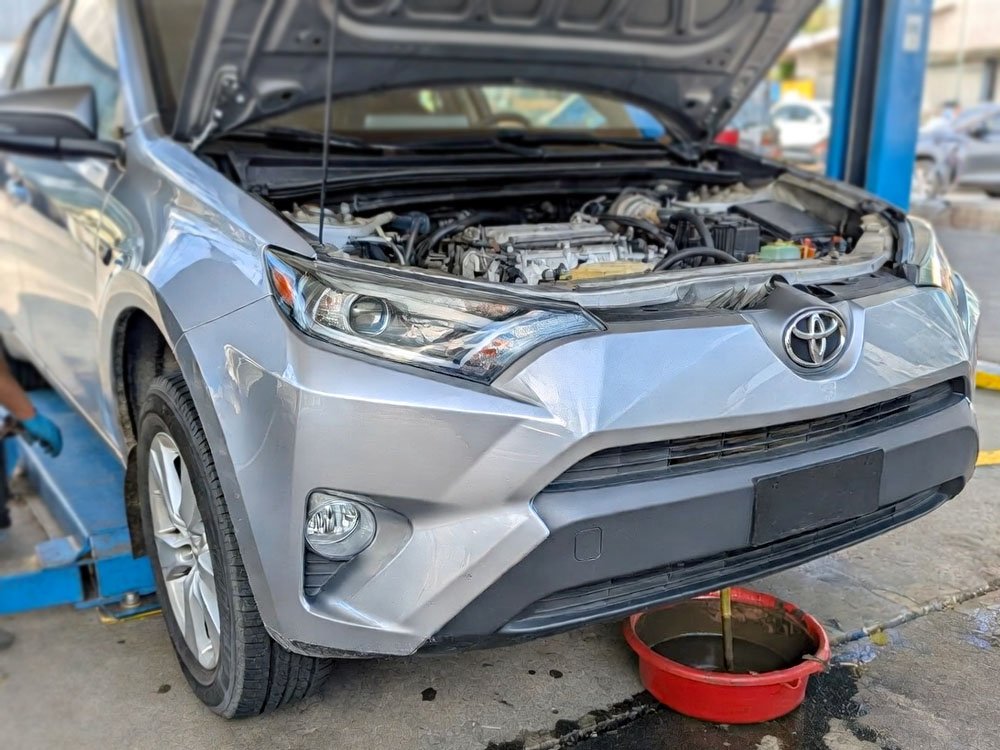As an Amazon Associate, I earn from qualifying purchases at no extra cost to you.
Car AC Stops Working When Hot Outside: Beat the Heat with These Proven Fixes
Your car’s AC may stop working in hot weather due to low refrigerant levels or a faulty compressor. It’s essential to have your AC system inspected by a professional to diagnose and address the issue accurately.
Driving in hot weather with a malfunctioning AC can be uncomfortable and even dangerous, especially if you’re prone to overheating. Understanding the potential causes of AC failure in hot weather and seeking prompt repairs can help you stay cool and safe on the road.
We’ll explore common reasons why car AC systems struggle in hot temperatures and provide tips for troubleshooting and resolving these issues to ensure your comfort and safety while driving.
Common Causes Of Car Ac Failure
Low Refrigerant Levels
If your car's AC stops working when it's hot outside, it could be due to low refrigerant levels. The refrigerant is a crucial component responsible for cooling the air that is blown into your car. If the refrigerant level is low, your AC won’t be able to produce cold air efficiently.
Faulty Compressor
A faulty compressor is another common cause of car AC failure. The compressor is responsible for pressurizing and circulating the refrigerant through the AC system. If the compressor malfunctions, it will affect the entire cooling process, leading to a lack of cold air in your car.
Blocked Condenser
When the car AC stops working in hot weather, a blocked condenser could be to blame. The condenser is located at the front of the car and is responsible for cooling the high-pressure refrigerant vapor into a liquid state. If the condenser is blocked by debris or dirt, it can restrict the heat transfer process, causing the AC to malfunction.

Credit: m.facebook.com
Preventive Maintenance Tips
Regularly Check Refrigerant Levels
Maintaining proper refrigerant levels is essential for your car’s AC system. Use a gauge to check levels regularly.
Clean Condenser Coils
Remove debris such as leaves and dirt to maintain optimal airflow. Gently clean the coils using compressed air or a soft brush.
Inspect Compressor For Wear And Tear
Check for any signs of damage on the compressor. Look out for leaks or worn parts that may affect the AC performance.
Diy Fixes For Car Ac Issues
Car AC issues can be frustrating, especially when the air conditioning stops working on hot days. However, before you rush to the nearest mechanic, there are some DIY fixes that you can try. With a little bit of troubleshooting and a few basic tools, you may be able to get your car’s AC back up and running without breaking the bank.
Replacing Cabin Air Filter
One common cause of AC problems in cars is a dirty or clogged cabin air filter. This filter is responsible for filtering the air that comes into the car’s cabin, including the air that is blown out of the AC vents. Over time, the filter can get filled with dust, pollen, and other debris, restricting the flow of air and reducing the effectiveness of the AC.
To replace the cabin air filter, follow these simple steps:
- Locate the cabin air filter housing, which is typically located behind the glove box or under the dashboard on the passenger side of the car.
- Remove the screws or clips that hold the housing in place.
- Take out the old air filter and inspect it for dirt and debris.
- If the filter is dirty or clogged, replace it with a new one. Make sure to install it in the correct orientation.
- Reassemble the housing and secure it back in place.
Checking For Leaks And Sealing Them
Another common issue that can cause your car’s AC to stop working when it’s hot outside is refrigerant leaks. Over time, the seals and connections in the AC system can deteriorate, leading to leaks that cause a loss of refrigerant. Without enough refrigerant, the AC won’t be able to cool the air properly.
To check for leaks and seal them, follow these steps:
- Start by visually inspecting the AC components, including the hoses, fittings, and compressor, for any signs of oil stains or refrigerant leaks.
- Use an electronic leak detector or UV dye to identify any hard-to-spot leaks.
- If you find any leaks, use a refrigerant leak sealant to seal them. Make sure to follow the instructions on the sealant product.
- Once the leaks are sealed, recharge the system with refrigerant.
Testing And Recharging Refrigerant
If your car’s AC is still not working properly after replacing the cabin air filter and sealing any leaks, it might be time to test and recharge the refrigerant. Low refrigerant levels can cause the AC to blow warm air.
Here’s how to test and recharge the refrigerant:
- Start the car and turn on the AC to the maximum cool setting.
- Attach a pressure gauge to the low-pressure port of the AC system.
- Check the pressure reading on the gauge. If it’s below the manufacturer’s recommended level, the refrigerant needs to be recharged.
- Attach a can of refrigerant to the low-pressure port and follow the instructions on the can to recharge the system.
By following these DIY fixes for car AC issues, you may be able to save money and get your AC working again when it’s hot outside. However, if these fixes don’t solve the problem, it’s always a good idea to consult a professional mechanic for further diagnosis and repairs.

Credit: www.amazon.com
Professional Solutions For Persistent Problems
When your car’s AC stops working during hot weather, it can be a frustrating experience. However, there are professional solutions available to address these persistent problems and restore your car’s cooling system to optimal performance.
Compressor Replacement
If the car AC stops working when it’s hot outside, one of the potential solutions is a compressor replacement. The compressor is a crucial component of the AC system, responsible for pressurizing the refrigerant and circulating it through the system. Over time, the compressor may wear out or develop faults, causing the AC to malfunction. A professional technician can diagnose the issue and replace the compressor to restore the cooling efficiency of the system.
Condenser Cleaning
Another professional solution for persistent AC problems in hot weather is condenser cleaning. The condenser plays a vital role in dissipating heat from the refrigerant, allowing it to cool down and circulate through the system. However, the condenser can become clogged with dirt, debris, or other contaminants, hindering its ability to transfer heat effectively. A professional cleaning of the condenser can help resolve this issue and improve the overall performance of the AC system.
System Diagnosis And Repair
If your car’s AC continues to stop working in hot weather, a comprehensive system diagnosis and repair may be necessary. This involves a thorough examination of the entire AC system, including the compressor, condenser, evaporator, and other components. A professional technician can identify any underlying issues, such as leaks, faulty components, or electrical problems, and perform the necessary repairs to restore the AC system’s functionality.
Effect Of External Factors On Car Ac Performance
High temperatures outside can strain the car AC system, reducing its effectiveness.
- Hot weather causes the AC to work harder to maintain cool air inside the car.
- Coolant in the AC system may heat up faster, affecting its efficiency.
The electrical components of the AC system may face overload under high temperatures.
- Excessive heat can lead to increased electricity consumption, straining the system.
- Fuse blowouts or compressor malfunction are common issues during hot weather.

Credit: www.amazon.com
Signs Your Car Ac Needs Attention
When the temperature rises, car air conditioning systems can sometimes struggle to keep up, leading to uncomfortable rides. It's essential to recognize the signs that your car AC needs attention so that you can address any issues promptly.
Weak Airflow
If you notice weak airflow from your car's vents, it could indicate a problem with the blower fan or a clogged air filter. Reduced airflow can also be caused by a malfunctioning compressor. Getting this issue addressed promptly can ensure your comfort during hot weather.
Unusual Smells
Unusual smells coming from your car's AC system, such as musty or moldy odors, could signal a buildup of bacteria or mold in the evaporator. Additionally, a sweet, syrupy smell could indicate a coolant leak. It's important to have these smells investigated to prevent any potential health hazards or further damage to the AC system.
Odd Noises
Strange noises coming from the AC system, such as squealing, grinding, or rattling, should not be ignored. These noises could be a sign of a failing compressor, worn-out bearings, or a loose component. Taking action to address these noises early can prevent more extensive and costly repairs down the line.
Importance Of Timely Car Ac Repairs
An efficient car air conditioning system is essential for a comfortable and safe driving experience, especially during hot weather. However, if your car’s AC stops working when it’s hot outside, it’s a sign that timely repairs are crucial. Neglecting car AC issues can lead to costly damage, compromised comfort and safety, and decreased resale value. In this section, we will explore the importance of addressing car AC problems promptly, highlighting the benefits of avoiding costly damage, improving comfort and safety, and enhancing the resale value of your vehicle.
Avoiding Costly Damage
Fixing your car’s AC issues in a timely manner can save you from potentially expensive repairs down the line. Ignoring problems such as a failing compressor, refrigerant leaks, or electrical issues can result in more severe damage to the AC system. With prompt repairs, you can prevent small issues from escalating into more significant problems, thus avoiding hefty repair bills.
Improving Comfort And Safety
A functional car AC system is not only vital for your comfort but also plays a crucial role in ensuring your safety. When the temperature rises and the AC stops working, it can lead to an uncomfortable and distracting driving experience. Hot weather can cause occupants to become easily fatigued, impacting their focus on the road. Timely repairs to the AC system help maintain a comfortable temperature inside the vehicle, allowing you to drive safely without distractions.
Enhancing Resale Value
Whether you plan to sell or trade-in your car in the future, having a properly functioning AC system can significantly enhance its resale value. Prospective buyers are often willing to pay more for a vehicle that offers reliable air conditioning, especially in regions with scorching summer temperatures. Ensuring your car’s AC is in good working condition through timely repairs can be a selling point and give you an edge in the competitive used car market.
Conclusion
Addressing hot weather-related issues for your car’s AC system is crucial. Regular maintenance and checks can prevent breakdowns. Stay cool on the road by ensuring your AC is working efficiently. Don’t let the heat disrupt your journey – keep your car’s AC in top condition.











